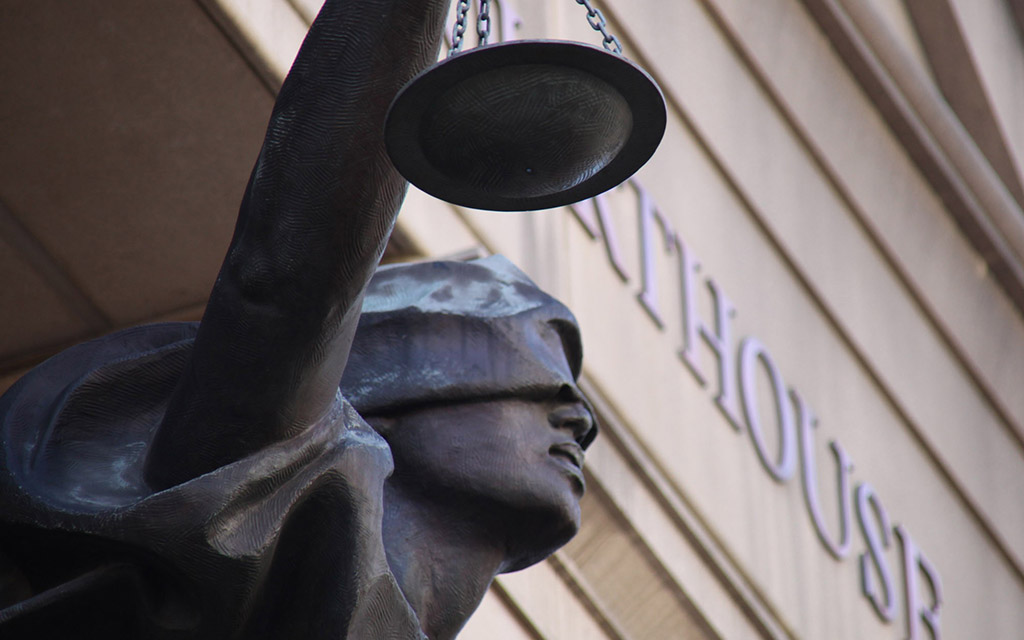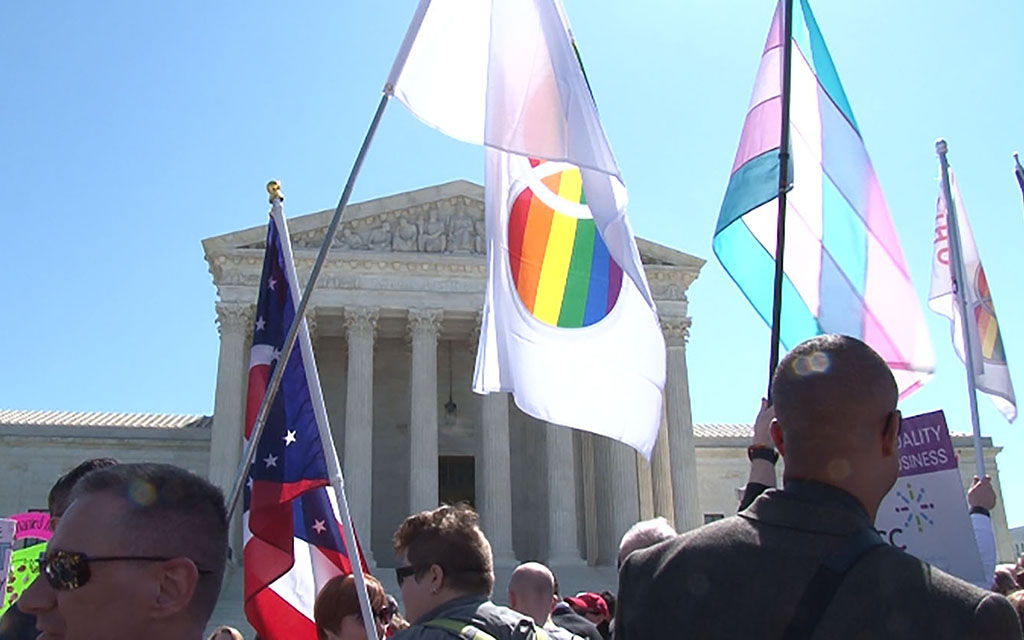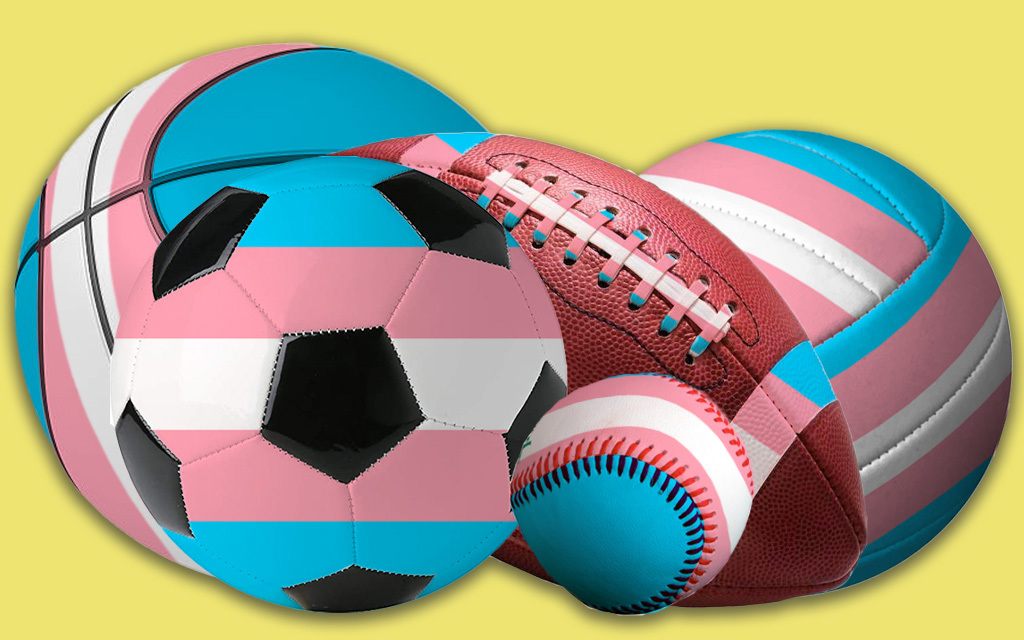
A three-judge panel of the 9th U.S. Circuit Court of Appeals said Title IX, which prohibits sex discrimination in educational settings, extends to protect perceived sexual orientation, and reinstated a former University of Arizona student’s lawsuit against the school. (Photo by Tim Evanson/Creative Commons)
WASHINGTON – A federal appeals court ruled Tuesday that Title IX protections prohibiting discrimination on the basis of sex also protect against harassment on the basis of a person’s perceived sexual orientation.
The ruling by a three-judge panel of the 9th U.S. Circuit Court of Appeals reinstates a lawsuit by a former University of Arizona athlete who claimed he was subjected to daily “sexual and homophobic bullying” by others on the track team and that coaches did nothing to stop it. Instead, he said, they retaliated by cutting him from the team and canceling his scholarship after he notified them.
University officials could not be reached for comment on the ruling, but attorneys for the athlete welcomed the “unambiguous” expansion of Title IX to include sexual orientation.
“Protecting queer and trans youth is so important given how much discrimination and how much hate they face,” said Alexandra Brodsky, a staff attorney with Public Justice.
The nonprofit legal advocacy organization represented a number of organizations, including the American Civil Liberties Union, the Arizona Trans Youth and Parent Organization, the Human Rights Campaign and more, in support of Michael Grabowski, the former student.
Grabowski, a distance runner who was recruited to come to Arizona on an athletic scholarship, claimed in court documents that the bullying from other members of the track team began as soon as he joined preseason training with the team in August 2017.
He said teammates directed homophobic slurs at him on an almost daily basis and made “multiple additional references alleging that they perceived him as gay.” That included posting an “untrue,” “harassing, homophobic, (and) obscene video” directed at him in the the team’s public chat group.
Grabowski’s father reported the bullying in August 2017 to a team coach, who said he would investigate the issue, and his mother contacted the team’s sports psychologist in October to ask that she talk to her son about the bullying. Also in October, Grabowski told another coach at the team Halloween party about the bullying.
But Grabowski said the coaches did not respond to his complaints or dismissed them, saying Grabowski needed to “adjust.”
In January 2018, his father repeated his concerns to one of the coaches and his mother reported her son’s “increasing sadness” to the team psychologist.
When coaches met with him in August 2018 and asked if any bullying was going on, Grabowski named two teammates who had subjected him to bullying. One coach said Grabowski could not “single out the top two runners on the team,” which Grabowski said in court documents was the start of a “concerted effort … to demoralize him.”
After a September 2018 meeting, when the coaches said Grabowski did not fit the “certain atmosphere we are trying to establish on this team,” he was dismissed from the team and subsequently lost his scholarship.
Grabowski sued, claiming the university and the Arizona Board of Regents were deliberately indifferent to his claims of harassment in violation of Title IX and retaliated against him. A federal district court judge dismissed the suit, but the appeals court Tuesday disagreed and sent the case back for a new hearing.

The U.S. Supreme Court ruled in 2020 that laws banning sex discrimination extended to sexual orientation, a case the 9th Circuit said directed its decision on Title IX. (File photo by Liliana Salgado/Cronkite News)
The ruling by Circuit Judge Susan Graber cited the Supreme Court’s 2020 Bostock, in which the court found that Title VII – aimed at preventing workplace discrimination on gender, among other factors – also protects against discrimination based on sexual orientation or gender identity. Graber wrote that “the same result applies to Title IX,” which prohibits sex discrimination in any educational program.
Grabowski never said in court filings that he is gay, but Graber said that does not matter. She said “perceived sexual orientation is actionable under Title IX.”
Brodsky said the scope of the ruling will be important going forward with future Title IX cases.
“This opinion is unambiguous that Bostock, the Supreme Court case that held that the employment discrimination statute Title VII protects LGBTQ workers, also applies to Title IX,” Brodsky said. That “protects students and as a result of that, schools have an obligation to address harassment based on real or perceived sexual orientation.”
Graber said that Grabowski had not proved the second element of a Title IX claim, that the harassment was “so severe that it deprived him of access to education opportunities or benefits.” But it said he could raise new allegations in that regard when his case goes back to district court.
“It’s a total victory for us because what the Court of Appeals has said is that the allegations we make in the complaint are sufficient to charge these violations,” said Bill Walker, Grabowski’s attorney. “If I can prove what I say in the complaint, I get the right to have this case presented to a jury.”
ABOR declined to comment, and calls made to UArizona and their attorneys were not immediately returned Tuesday.

